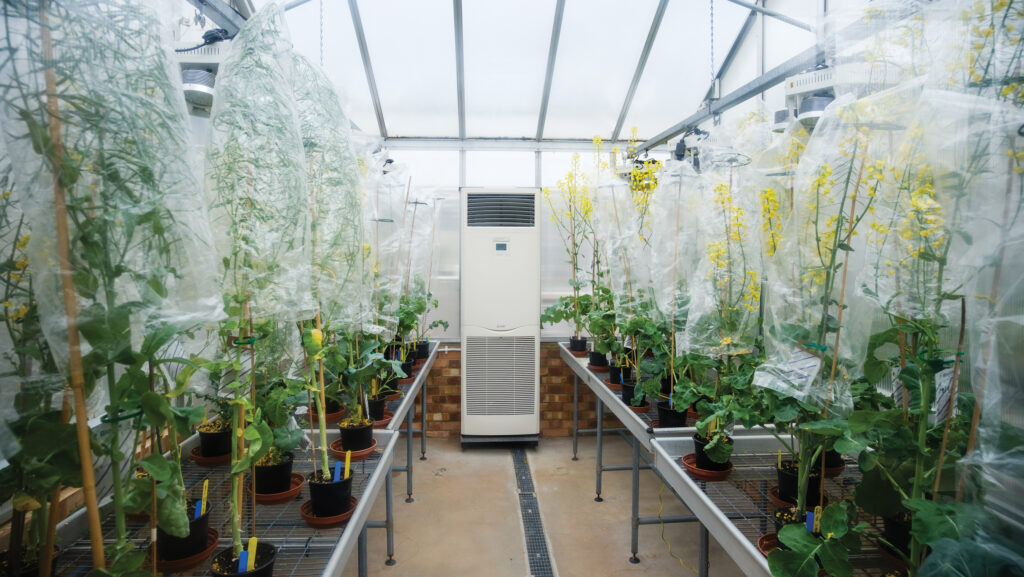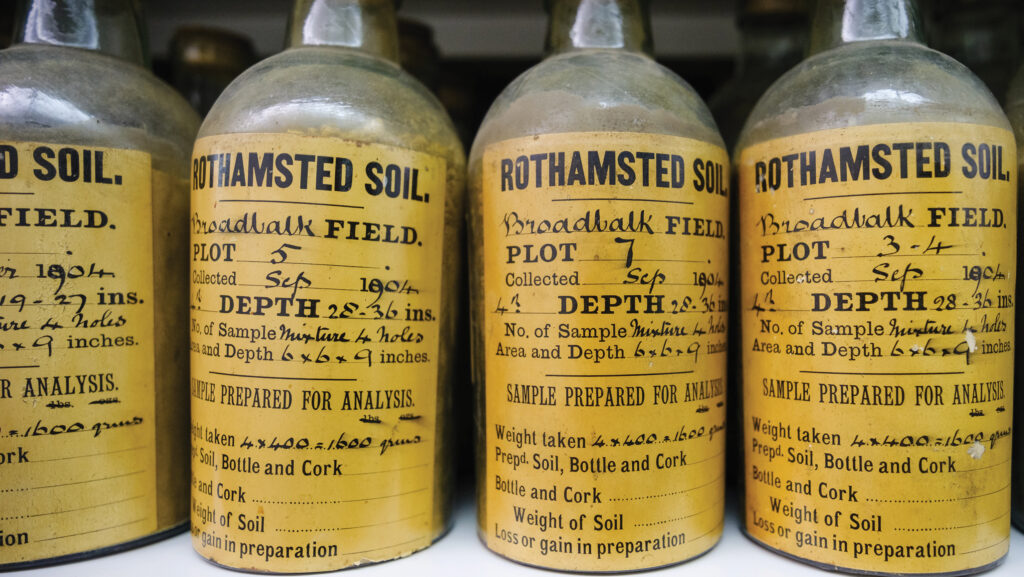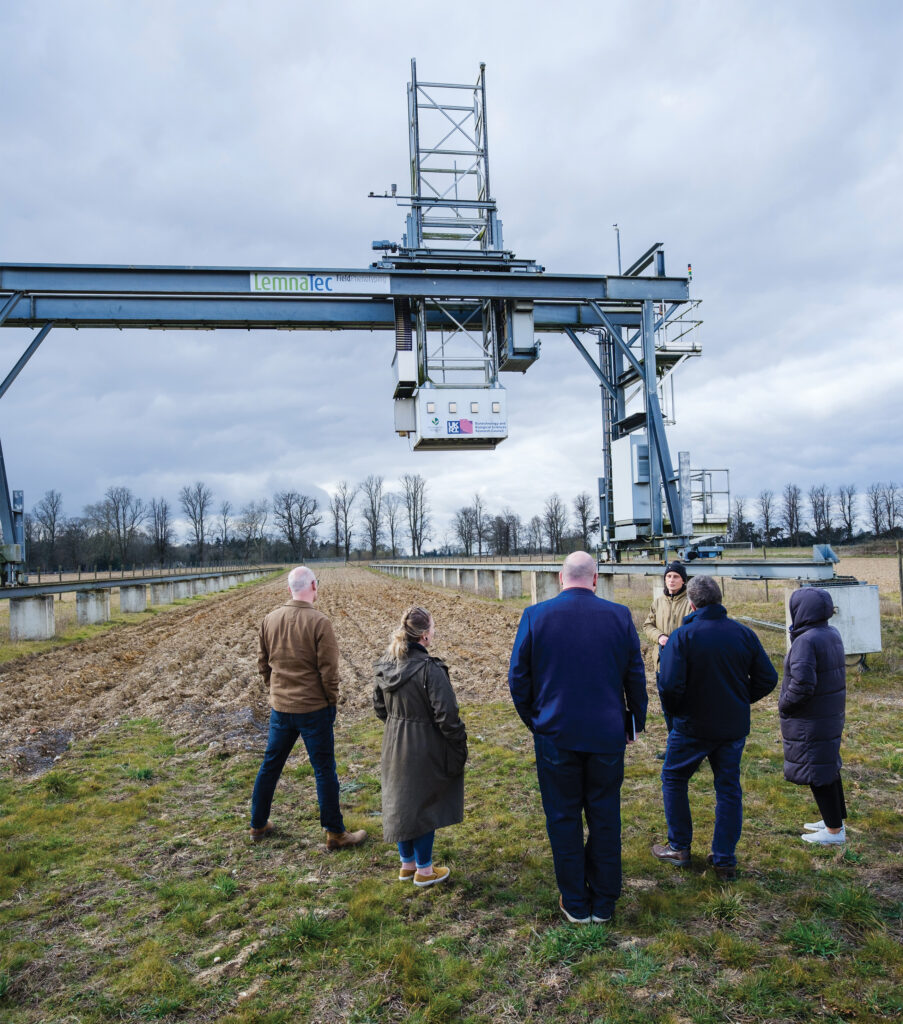Better genetics needed to improve crop and livestock output
 © MAG/Colin Miller
© MAG/Colin Miller Further genetic improvements are needed to meet the challenges of modern agriculture, according to scientists hosting a Transition Project farm walk.
The walk attracted dozens of farmers, growers and Transition Project partners to hear how Rothamsted Research’s site in Harpenden, Hertfordshire, plays a vital role in UK agriculture’s future.
See also: How Precision Breeding Act is advancing gene edited crops
Director of plant sciences for the bioeconomy strategic area Prof Freddie Theodoulou explained that climate change, insect pests, disease and fungal challenges are adding to difficulties faced by arable growers.
But she said conventional crossbreeding had considerable time constraints.
Typically, developments take eight to 10 years to produce a desired trait, such as better yield, or resistance to disease or drought.
The conventional crossbreeding process may also transfer unwanted traits that might hamper growth characteristics, she pointed out.
In contrast, precision breeding and gene-editing processes overcome these constraints and offer unprecedented opportunities for crop and forage improvement.
Visitors heard that genome editing is an operation where DNA is inserted, deleted, modified or replaced in a living organism’s genome. Importantly, gene editing is less controversial than genetic modification (GM).
That is because gene editing focuses on making precise changes within the existing DNA, whereas GM introduces foreign DNA from other organisms – a process that sparked opposition among campaign groups.
Rothamsted successes
Speakers outlined some of the key successes brought about by gene editing at Rothamsted. One of the key successes is the development of high lipid forage by Prof Peter Eastmond’s team.
He explained that an increased lipid proportion in forage produces a higher metabolisable energy (ME) content in the plant.
A higher ME boosts production efficiency, improves meat and milk quality and cuts greenhouse gas emissions by reducing methane output.
In crops, a Rothamsted Research team – led by Prof Nigel Halford – has successfully used gene editing to produce wheat that is low in asparagine – an amino acid found at different levels in wheat varieties.
Under high-temperature cooking or processing, asparagine produces a chemical called acrylamide – which has been linked with increased cancer risk.
Many foods already breach intake guidelines, but maximum limits may become even stricter in the near future, according to Prof Halford.
That underlines the importance of the work carried out by Prof Halford’s team which has used the CRISPR gene editing technique to cut asparagine levels by 50%.
Successful field trials reproduced the same result indicating that the edited plant could be grown commercially.

Visitors were able to see Rothamsted’s archive of more than 330,000 plant and soil samples © MAG/Colin Miller
Field-scale trial network
The importance of field-scale trials was underlined by another speaker at the farm walk, Tom Allen-Stevens, managing director of the British On-farm Innovation Network (Bofin).
Mr Allen-Stevens explained that Bofin connects researchers with a network of commercial growers who carry out trials at field-scale.
Example trials include a Platform to Rate Organisms Bred for Improved Trait and Yield (Probity) – a three-year £2.2m multi-partner project.
The project trials three precision-bred cereal varieties.
Farm walk visitors also heard about Bofin’s Nitrogen Efficient Plants for Climate Smart Arable Cropping Systems – a farmer-led research programme, involving 17 industry and research partners, and more than 200 farmers.
The aim is to increase pulse and legume cropping in UK arable rotations from 5-20%, and then to help replace up to 50% of imported soya meal used in livestock feed rations.
This would bring about a reduction of 1.5m tonnes of carbon dioxide equivalent a year or 54% of the industry’s maximum potential.
A further Bofin trial project outlined was Thriving Roots Underpinning Total Soil Health (Truth), a three-year £1m research programme aiming to deliver a farmer-led platform comprising on-farm soil/root health testing tools and an in-field soil health sensor, which provides more than 10 soil health indicators.
Mr Allen-Stevens invited any farmers wanting to be involved to get in touch through the Bofin website.

Rothamsted’s ‘Scanalyser’ is a huge scanner capable of monitoring field-scale crops © MAG/Colin Miller
